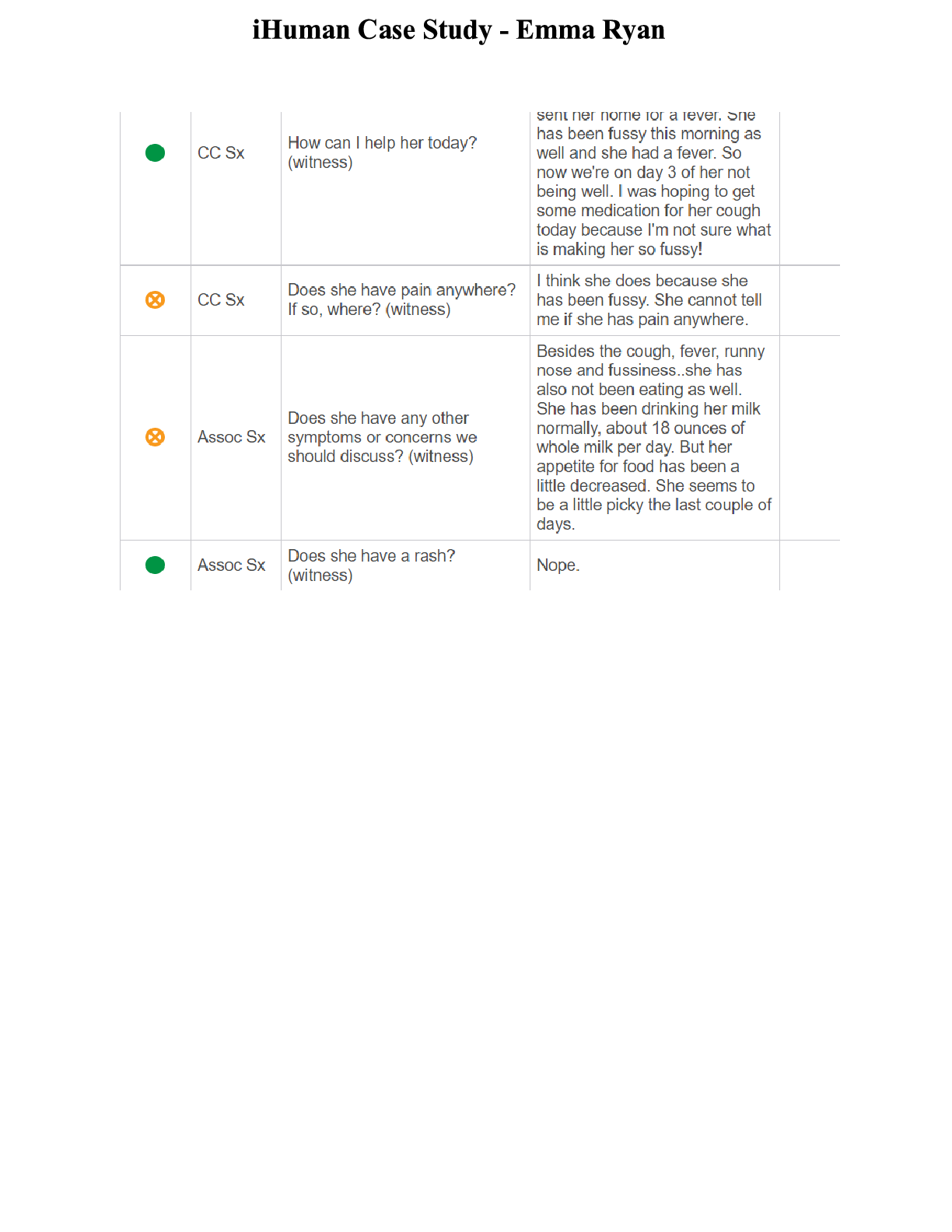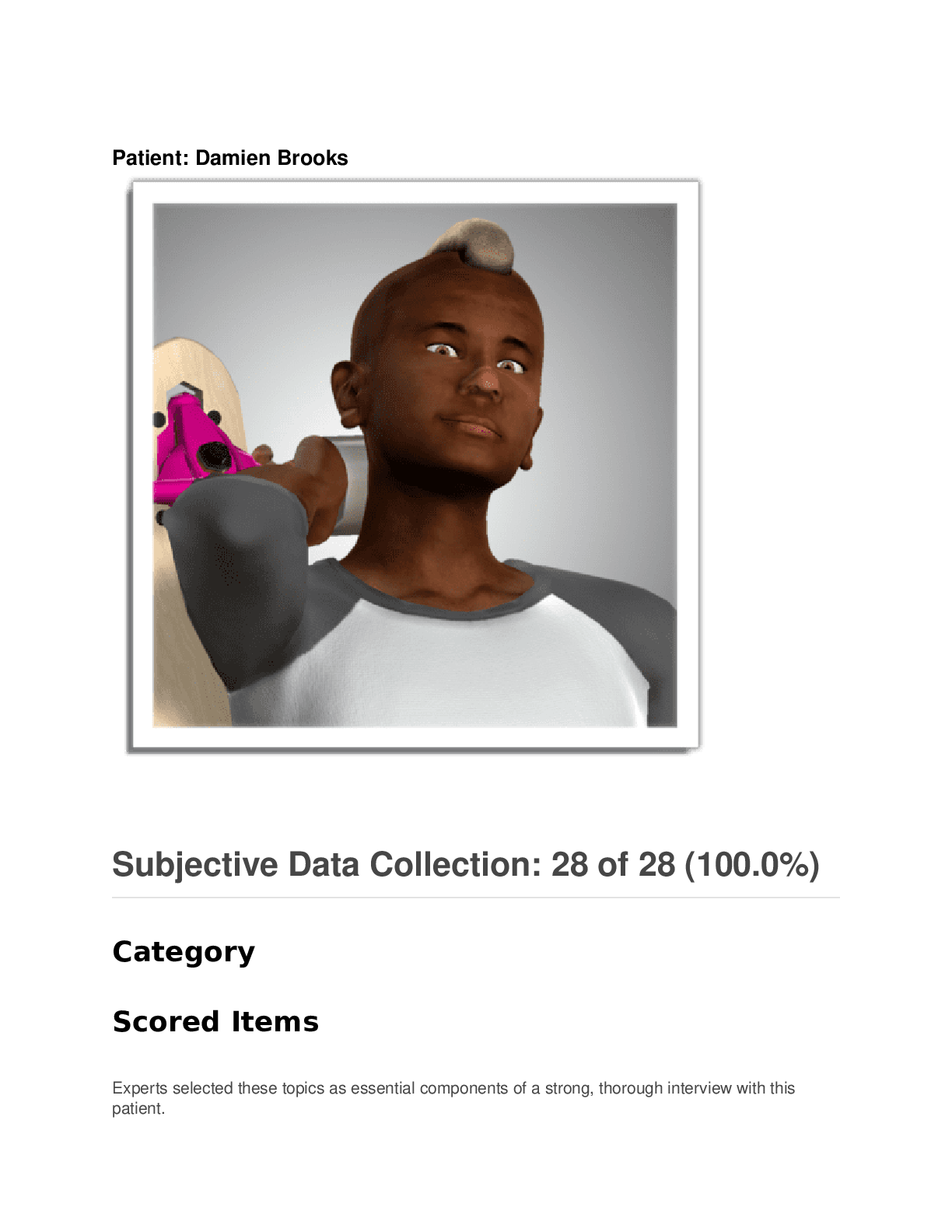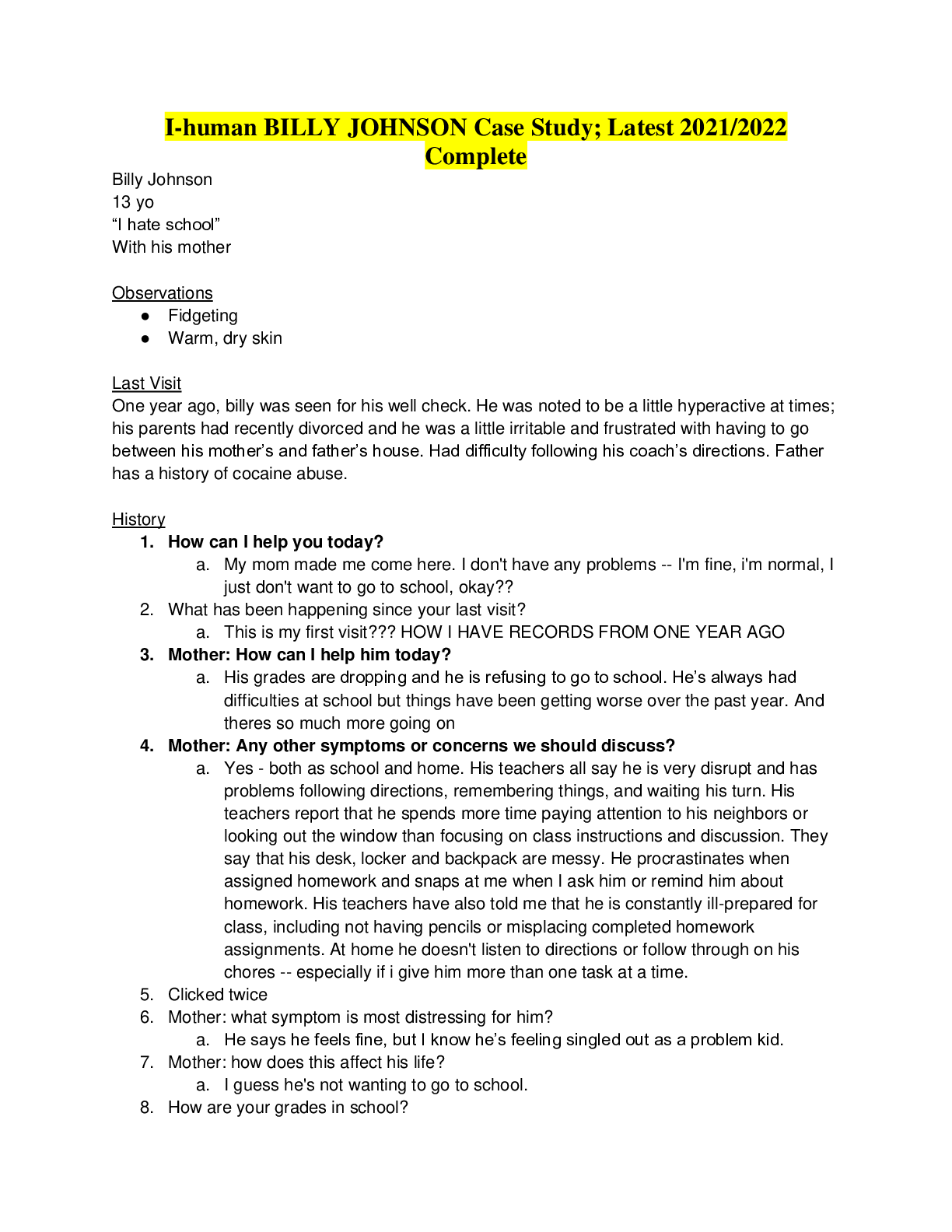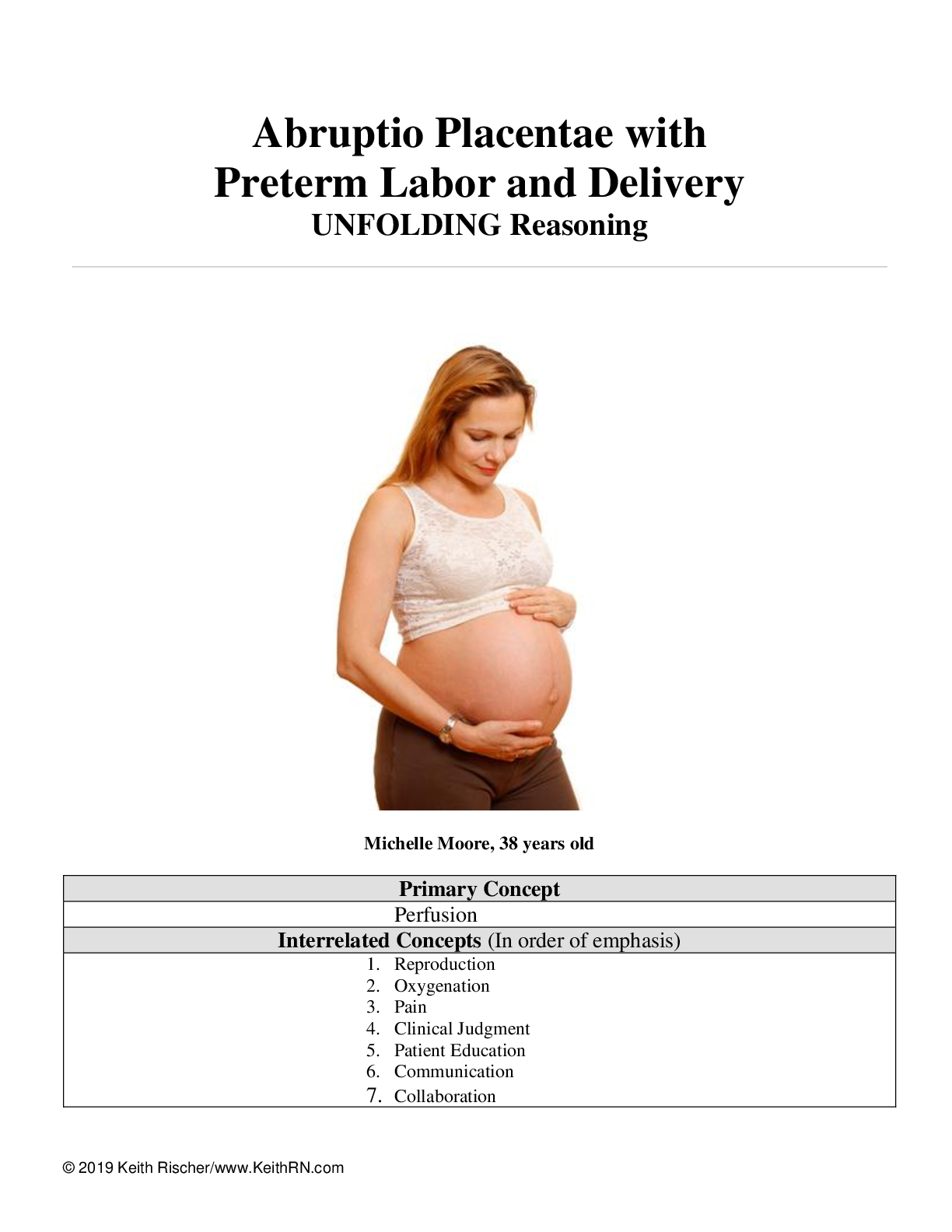*NURSING > CASE STUDY > VSIM FOR NURSING|FUNDAMENTALS-Kim Johnson 2021 (All)
VSIM FOR NURSING|FUNDAMENTALS-Kim Johnson 2021
Document Content and Description Below
DESCRIBE DISEASE PROCESS AFFECTING PATIENT (INCLUDE PATHOPHYSIOLOGY OF DISEASE PROCESS) Spinal Cord Injury is damage to the spinal cord caused by fracture, contusion, dislocation, subluxation or com... pression of the nerves. Most common sites can be C5, C6, C7, T12, L1, L4-L5, and L5-S1 vertebrae. The classification of spinal cord injury could be Paraplegia: spinal cord injury that occurs in the thoracic, lumbar, or sacral segments and involves paralysis in the lower half of the body. Pathophysiology: Injury causes compression, pulling, twisting, or tearing of the cord, resulting in microscopic hemorrhages. Edema causes spinal cord compression, further decreasing the blood supply. Spinal nerves are blocked or tangled; ischemia continues due to damage or impingement. DIAGNOSTIC TESTS (REASON FOR TEST AND RESULTS) PATIENT INFORMATION ANTICIPATED PHYSICAL FINDINGS ANTICIPATED NURSING INTERVENTIONS Wash hands, introduce self, and identify patient Obtain vital signs, including asking about allergies and pain level every 8 hours Auscultate lung sounds Check the provider’s orders in the electronic health record (EHR) Provide patient education about intake and output Provide patient education about the bladder management program Provide patient education about Antiemobolism stockings Call for secondary nurse to help to change patient position Perform Bladder scan before catheterization Arterial blood gas analysis may identify respiratory impairment. Creatinine level (serum), monitor the renal function Level of injury and any spinal cord damage located by neurologic assessment Limited range of motion (ROM) Bladder incontinence Bowel incontinence Kim Johnson is a 26-yearold female police officer with paraplegia from a thoracic 8 (T8) spinal cord injury. The complete spinal cord injury was caused by a low- velocity gunshot wound to her back Perform intermittent catheterization Perform active and passive range of motion exercise to the extremities Provide clear explanations and emotional support; encourage the use of positive coping strategies Turn and reposition the patient regularly and frequently...........................continued [Show More]
Last updated: 2 years ago
Preview 1 out of 17 pages
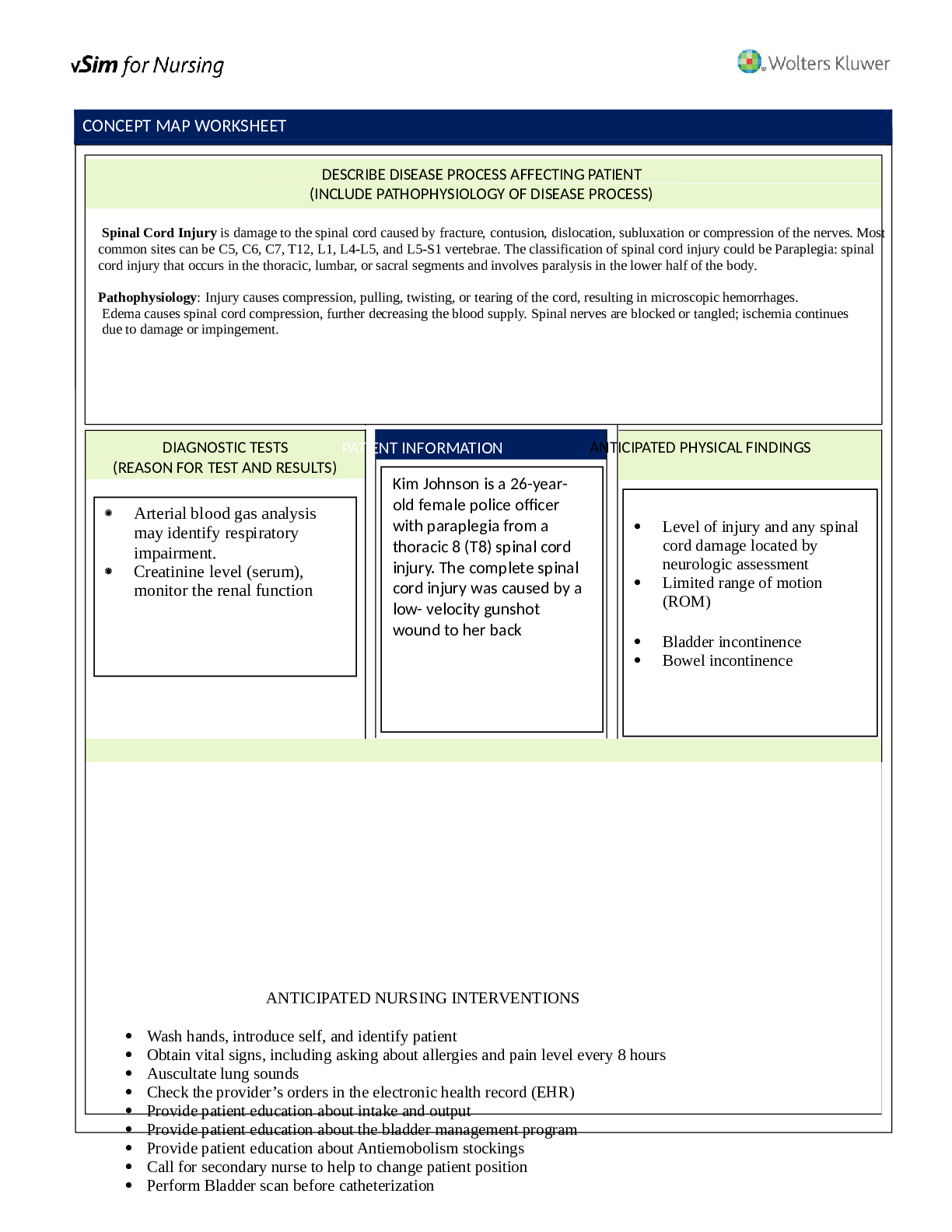
Buy this document to get the full access instantly
Instant Download Access after purchase
Buy NowInstant download
We Accept:

Reviews( 0 )
$13.50
Can't find what you want? Try our AI powered Search
Document information
Connected school, study & course
About the document
Uploaded On
Aug 19, 2021
Number of pages
17
Written in
Additional information
This document has been written for:
Uploaded
Aug 19, 2021
Downloads
0
Views
73


